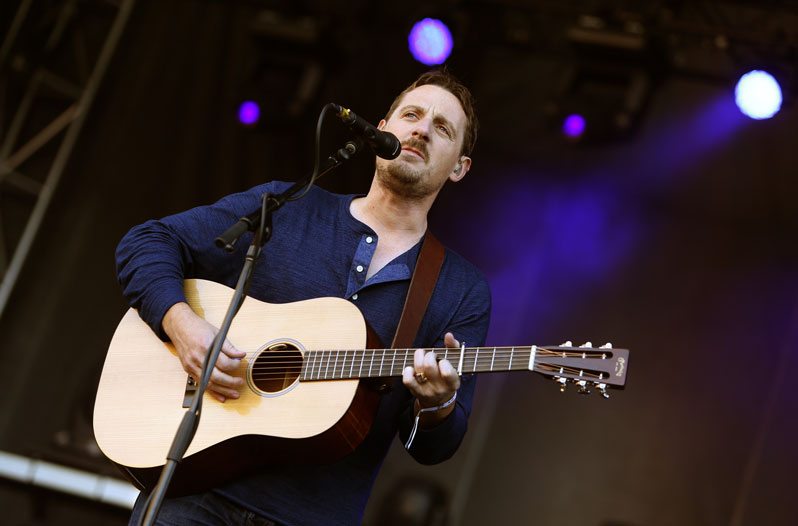[dropcap]W[/dropcap]hen provocative country singer Wheeler Walker Jr. appeared on comedian Joe Rogan's podcast earlier this month, the singer said he sold more albums following his last appearance on Rogan's podcast than the musical artist on Saturday Night Live that same week. It's a testament to the power of the podcast, the revolution helping to even the playing field for artists without mainstream support.
Videos by Wide Open Country
For someone like Walker Jr., whose music has been banned from Walmart and Target, podcasts are a saving grace. Podcasts allow artists to reach thousands of listeners that may not have otherwise heard them. They no longer have to kiss the ring of corporate radio. Podcasts are the new frontier.
According to Forbes, 15 percent of Americans listen to podcasts every week. Another benefit? People who seek out podcasts tend to be more engaged with the subject. While someone may stumble across an artist while scanning their radio dial or flipping through television channels, podcasts are for the devoted fans.
Casting a Wide Net
We've seen how streaming and social media can boost a budding country star's career. But how do podcasts impact the country genre specifically?
Recently, podcast heavyweights have thrown their support behind country artists. Marc Maron, whose popular WTF podcast receives about 220,000 downloads per episode, has hosted Margo Price, Sturgill Simpson, Jason Isbell, Patterson Hood, Dave Alvin and Lucinda Williams.
Joe Rogan, who has one of the top podcasts in America right now, helped boost Sturgill Simpson's profile when he had the singer on in 2014.
Chris Shiflett, guitarist for the Foo Fighters and lead singer of the country outfit the Dead Peasants, hosts the country music podcast Walking the Floor. The podcast has become one of the leading outlets for Americana and independent country acts like Sam Outlaw, Lydia Loveless, Michaela Anne and Sunny Sweeney.
Major entities are taking notice of the medium's influence. Spotify and Google Play have launched music podcasts. Even Nashville radio titan Bobby Bones has made waves with his BobbyCast. The podcast gives an inside look at how country radio operates. Bones has a mix of well-known artists and those who are still struggling for radio play. Though the podcast is a production of iHeartMedia, a powerful media conglomerate, guests on Bones' podcast have been open about topics such as sexism in the radio industry. Bones has also been critical of radio programmers, calling radio politics "crap" and programmers "knuckleheads."
Power of the Pod
Where radio is beholden to sponsorships and time constraints, a podcast creator is as free as the breeze. While mainstream media outlets often deal in soundbites, a podcast allows an artist to delve into a deeper discussion or their life, career and art. A podcast gives an artist free range to debut a new song or announce an upcoming album to a wide audience.
READ MORE: 12 Rising Country Artists to Watch in 2017
This new form of media also allows creators to be hyper-focused on one topic within the music industry. Americana singer-songwriter Joe Pug created The Working Songwriter podcast, which invites Americana and country songwriters to discuss their craft.
Audio programs less expensive to produce than video, making them a more accessible outlet for someone just entering the broadcast world. The grassroots medium puts the power in hands of the people-- passionate fans who want to spotlight an artist they love. Guests are decided by the podcast creator--and occasionally their listeners-- rather than industry taste-makers.
An emerging artists may not shoot to the top of the country charts after appearing on a podcast. But that's not necessarily the goal. Podcasts are helping to build communities of music fans. Those fans will continue supporting their favorite artists even if radio never does.




